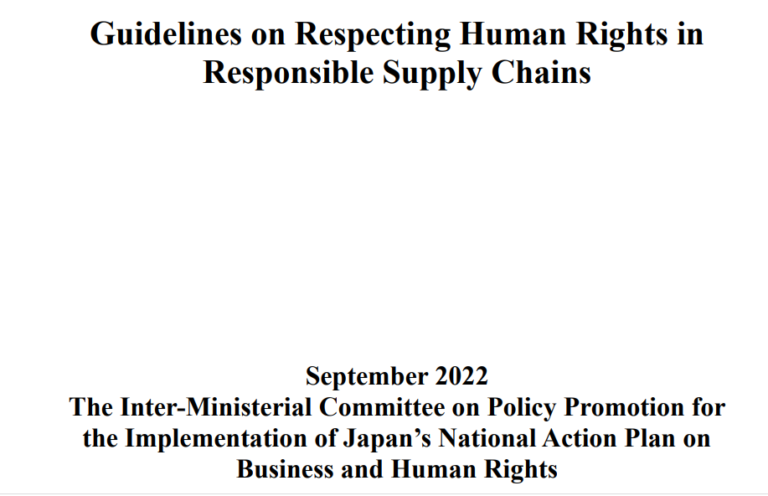While globalization has driven economic development, the world faces difficult issues such as widening disparities and poverty, the escalation of climate change and other environmental problems, the spread of infectious diseases, and the eruption of conflicts, which are closely related to problems involving human rights abuses. While respecting freedom, democracy, human rights, the rule of law, and other universal and fundamental values more than ever, Japan will facilitate resolution of these global issues along with other countries worldwide to achieve sustainable
economies and societies.Human rights are the inherent rights of all people to ensure their life, liberty, and to pursue happiness, and to live with dignity. States have the duty to protect and fulfill human rights.In 1948, the General Assembly of the United Nations adopted the Universal Declaration of Human Rights, which set out the first set of principles of respect for fundamental human rights and internationally proclaimed the goals and standards for protection of human rights. Subsequently, as the adverse impacts of business activities on human rights expanded with the acceleration of globalization, and international discussions on corporate responsibility for human rights abuses by business activities became more active, the Guiding Principles on Business and Human Rights: Implementing the United Nations ‘Protect, Respect and Remedy’ Framework (“UN Guiding Principles”), one of the most important international frameworks for business and human rights, were endorsed by consensus in the United Nations Human Rights Council in 2011.The UN Guiding Principles rest on three pillars: the State’s duty to protect human rights, corporate responsibility to respect human rights, and access to remedy. States and business enterprises are required to supplement each other and fulfill their respective roles.

